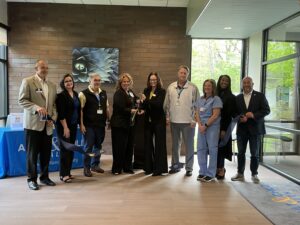Outreach Services to Minorities and Refugees
Adult and Child Center is very excited to announce a grant award from the Indiana Department of Mental Health and Addictions to embed behavioral health staff into neighborhood based programs which are focused on serving minority populations around Greater Indianapolis. This multiple year project will embed staff in programs at Esperanza Ministries, BACI-Indy, and Catholic Charities starting January 2016.
With the implementation of HIP 2.0 in Indiana, and the steady uptick in the minority populations in and around Indianapolis, Adult and Child Center is beginning to see an increase in the demand for behavioral health services from non-english speaking populations. “We are very excited to have great partners like BACI, Esperanza, and Catholic Charities on this project. Each of them are amazingly mission driven and focused on improving the general health and well-being of their consumers. This project is very unique and exciting because while we are embedding clinical staff in new cultures, we will also use Peer Specialist to bridge the language and cultural divide. A Peer Specialist is someone from a particular culture who is also well versed in the delivery of behavioral health services.” said Dan Arens, Director of Business Development at Adult and Child Center.
This project is the first of many programs A&C hopes to implement in Central Indiana focused on providing increased access to behavioral health services.
“A significant part of Adult and Child Center’s Neighborhood Based Mental Health plan involves better engagement of minority populations. A&C is proud to have partnered with 3 minority focused agencies in this proposal. The plan of operation involves developing a low cost model of engagement from within these minority communities. In order to break through generationally engrained cultural barriers and stigma around mental health and addictions, Adult and Child Center is proposing an innovative model. Through this model, Adult and Child Center will leverage both a full-time LCSW with special interest in supporting minority populations AND specially trained bi-lingual peer specialists from each partner agency culture to identify, engage, and support the populations targeted within this proposal. The goal of this project is to increase mental health service usage rates among targeted minority populations. The critical components of improving access to care include culturally sensitive engagement, relationship building, education, and warm hand-offs.”






